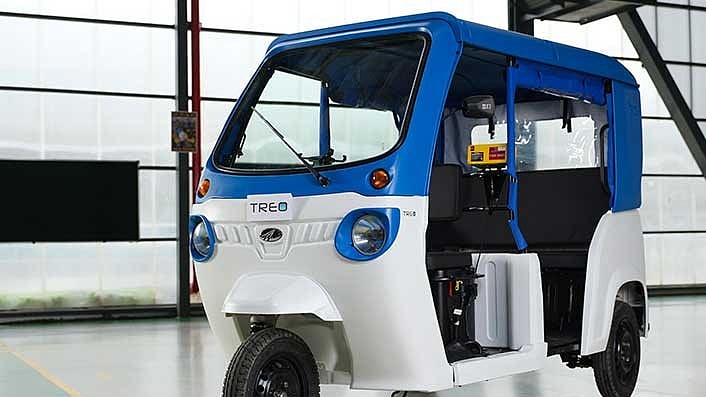
Representational image for electric three-wheeler
Credit: mahindraelectric
Mumbai: India has emerged as the global leader in the electric three-wheeler market, commanding 57% of global sales in 2024, according to a new progress report on the zero-emission vehicle (ZEV) transition released during COP30 in Belém in Brazil. The report highlights India’s rapid shift toward clean mobility, positioning it as a key driver of the global transition to zero-emission transport systems.
Prepared by the Accelerating to Zero Coalition, for which the International Council on Clean Transportation (ICCT) serves as secretariat, the COP30 Progress Update: Driving Progress on the Zero-Emission Vehicle Transition finds that India’s policy-driven transformation has also made it the world’s second-largest electric two-wheeler market, with a 6% sales share in 2024.
Targeted government initiatives such as FAME and PM E-Drive have played a decisive role in achieving price parity between electric and conventional models, fueling large-scale adoption and private sector investment across last-mile mobility.
By focusing incentives on the vehicles that dominate its roads and last-mile logistics, India is creating a self-reinforcing cycle of market acceleration. Building on this momentum, the PM E-Drive Scheme aims to accelerate EV adoption by incentivizing the sale of about 2.5 million electric two-wheelers and 320,000 three-wheelers, supported by US$315 million in subsidies for vehicles and charging infrastructure. This supportive policy environment has encouraged private investment, with Zomato committing to a 100% electric delivery fleet by 2030 and launching an electric rental bike pilot in Delhi NCR. Such public–private synergy demonstrates how strong policy design can drive large-scale, sustainable electrification in emerging markets.
Despite recent policy adjustments in some advanced economies, global EV adoption continues to grow. EVs accounted for 18% of global light-duty vehicle sales in 2024, up from 14% in 2023, reflecting strong momentum across emerging markets. France, Spain, and Croatia expanded purchase incentives, while the United Kingdom and Canada refined their ZEV mandates. Global charging infrastructure also crossed 5 million public charging points, doubling since 2022.
India maintained steady growth with a 23% year-on-year rise in light-duty EV sales (2023–2024) and a 2.9% EV sales share in the first half of 2025. The report credits the EU’s
Alternative Fuels Infrastructure Regulation (AFIR) and India’s FAME and PM E-Drive programs as key policy drivers accelerating global progress toward zero-emission mobility
“Two-wheelers accounted for more than three-quarters of all motor vehicles sold in India last year. In fact, two- and three-wheelers together made up nearly 80% of total vehicle
sales. India is rightly targeting the electrification of its largest vehicle segment - and the results are beginning to show. However, the Government of India, through the PM e-DRIVE scheme, is now going a step further by launching a dedicated programme to accelerate the electrification of medium- and heavy-duty trucks. These vehicles represent only about 3% of the total vehicle stock but contribute nearly 44% of transport-related greenhouse gas emissions. This shift in focus is both timely and welcome.” said Amit Bhatt, India Managing Director, ICCT.